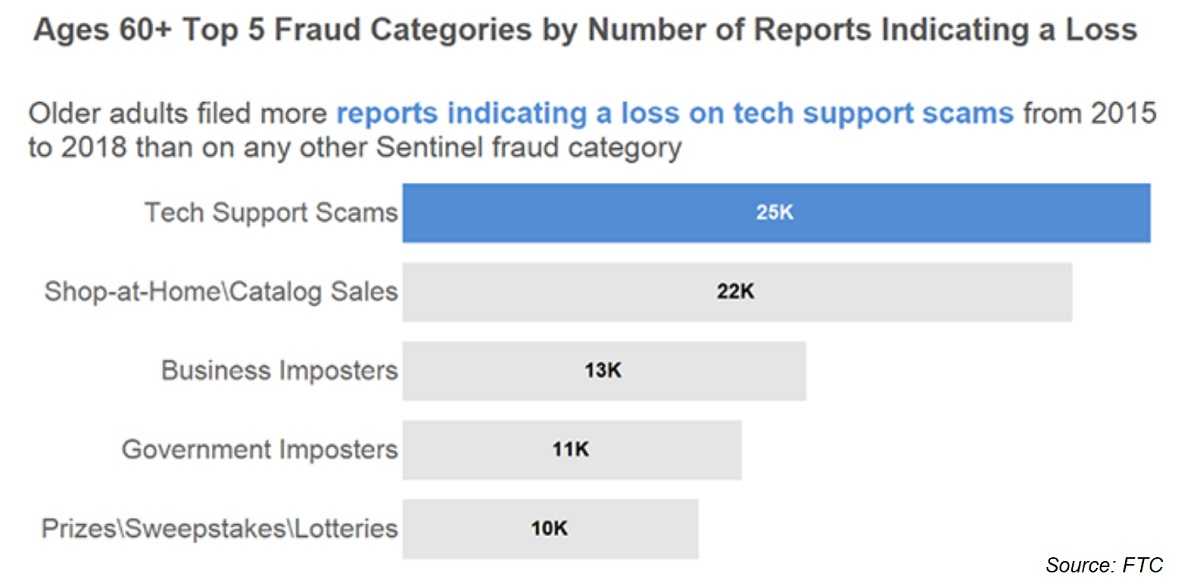The FBIs Internet Crime Complaint Center (IC3) unit is warning the public, especially older adults, about an increase in tech support scams. These persistent little scams just won’t go away; they just get revised and reinvented to target new potential victims. In this latest version, scammers pretend to be from legitimate companies, contacting victims through phone calls, texts, emails, or even pop-up windows. I guess they thought we wouldn’t mind seeing a few more of those.
The scam goes as such: The caller claims there is fraudulent activity happening or a refund for a subscription service is due to the victim. The scammers provide a phone number for victims to call, oh so helpfully offering their assistance with the “refund.”
Once the victim calls, the scammer convinces them to download software, granting remote access to their computer. The victim is then asked to log in to their bank account, with the scammer watching over them, where the scammer supposedly deposits a refund but instead, "accidentally" adds more money. The victim is then told to return the excess cash via shipping companies. And just to be on the “safe side,” they are asked to wrap the cash in a magazine or concealed package. This is so that no one finds out about the scammer’s so-called mistake causing them to lose their job.

There is a lot wrong with this scam. So let’s go through it.
 #1. Tech support people don’t just contact you out of the blue and offer to help. If you think you overpaid for a service, they will wait for you to call them.
#1. Tech support people don’t just contact you out of the blue and offer to help. If you think you overpaid for a service, they will wait for you to call them.
#2. If you need to contact tech support for any product or service, use a number you find on your own via trusted sources. Go to the company’s legitimate website and find it, for example. Don’t call a number or email an address given to you by an unsolicited caller. It will most certainly direct you right back to the scammer.
#3. If someone wants you to send cash for a mistake, the big red flag of “no way is this legit” should be waving high and fast like the checkered flag at the end of a car race.
#4. If none of those are a trigger, the fact they want you to conceal it definitely should be.
To protect against these scams, never download software from unknown sources or grant access to your computer. Avoid clicking on unsolicited pop-ups, text links, or email attachments. Never send cash via mail or shipping companies. If you need to pay for something, a legitimate company will take a payment card or electronic payment.
If you encounter such scams, report the incident to the IC3. There is a form on the IC3 website. Provide as much information as possible about the scammers' identity and methods of communication.